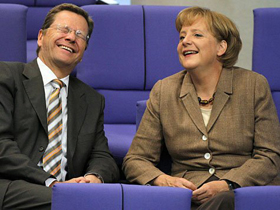During the third part of the 20th century the concept of social democracy made an important contribution to the process of international détente; helping to establish more balanced relations between industrialized and developing countries, and eliminating the hotbeds of tension outside Europe. Social Democrats were the initiators and leading proponents of a number of democratic and social reforms in their respective countries. But in the early 21st century they were unable to give a positive answer to new developments in domestic European and international affairs. As a result, the Social Democrats’ positions seriously weakened in parliament, their representation in the executive authorities diminished, and they ran into conflict with the low-income segment of the population that traditionally supported them. The future of social democracy depends, in many ways, on whether it is able to reverse this trend, both in terms of practical policy and its theoretical response to the problems resulting from the systemic crisis in the European and World economy.
In the early 21st century, Western Europe’s Social Democratic political parties faced the emerging trend of fading electoral support and their weakened position in executive power. As of 1 January, 2013, the Social Democrats, Socialists and Labor parties in EU member states were in the opposition in the UK, Germany, Sweden, Spain and Portugal; and act as the Conservatives’ junior partners in the Netherlands, Finland, Ireland, and Luxembourg.
Only France bucked this trend, where the Socialists managed to form a one-party Government.
This decrease in electoral support for the Social Democrats became evident at the recent (June, 2009) elections to the European Parliament. Then, the representatives of reformist political groupings lost out to the Conservatives and Christian Democrats in 12 out of 15 ‘old-European’ countries in the EU.
The “golden years” of social democracy
After the end of World War II, social democracy as a political force grew in political significance. During the process of economic recovery in post-war Europe, the Social Democrats actively defended the social and material interests of the low-income segments of the population and strengthened their relations with the trade union movement.
During the 1960s-1970s the reformers advocated the establishment of a “social state” (more commonly known as the Sozialstaat or welfare state) as a system of guarantees for wage labor, employees, students and the retired. The “social state” became one component of “socialized capitalism,” which, by the end of the century, had consolidated and represented the triple unity of a social market economy, the social state and social-political partnership.
The Social Democrats regarded the social-political partnership as a pivotal element of the European power structure and defended the class interests of the majority of their electorate within the negotiation process, including at government level, with political exponents of various political groups defending the rights and interests of private owners – the Christian Democrats, Conservatives, and Liberals.
The contribution that social democrats, and the concept of social democracy, have made to the process of European and international détente, and to the localization of explosive conflicts in Asia, Africa and Latin America, helped to further strengthen its role in Europe.
The Social Democrats were quite consistent in their relations with Communists in the labor movement, engaging dialogue and even short-term cooperation with Communists in France, Finland, Italy and Portugal. However, the Social Democrats never recognized the violation of generally recognized norms of democracy as legitimate in the USSR and other “socialist community” countries.
New era
The communist system’s collapse (largely under its own weight), the beginning of the active phase of building a “common European home,” moving goalposts in international affairs, and a plethora of problems inherent to globalization – all this required new answers from the Social Democrats, who had an opportunity not only to maintain, but to expand their influence in Europe. In the 1990s this as done partially through the inertia resulting from previous achievements and flexibility when confronted by the collapse of communism, their obvious contribution to the establishment of the European Union, and skillful dirigisme in regulating a less-than-sound European economy.
However, events that dominated at the turn of the 21st century demonstrated that the Social Democrats started to get “bogged down” in the main issues of foreign, domestic and European policy. Clearly, they did not score points in the so called “peacemaking” efforts in the former Yugoslavia. The air strikes on Belgrade and other Serbian cities were delivered at a time when Social Democrats headed the governments of NATO member countries. The massacre in Srebrenica happened under the total inaction of peacekeepers from the Netherlands, where the Social Democrats were in power. The Prime Minister of Great Britain Tony Blair, who led a Labor government in the country, was a prominent backer (or even co-author) of U.S. President George W. Bush’s attack on Iraq.
Social Democrats have been displaced, taking second-tier roles in further EU development. The European Christian Democrats, Conservatives, and Liberals have become (and remain) the main officials in this organization.
The Social Democrats’ position in the European Parliament seemed inarticulate. If in the 1990s they were the most numerous group in the European Parliament, then during the recent decade they have ceded first place to the Christian Democrats and Conservatives. After the 1999 elections there were 214 members of the Social Democratic caucus and 201 Conservative/Christian Democrats elected to Parliament while in 2009 the balance of forces had changed, in favor of the latter (265 against 184).
Ideological impasse
One might have thought that recent developments in the world economy and global economic policy (chiefly the acute phase of the EU systemic crisis), rising tensions and volatility in the Middle East, and global energy and environmental problems would be conducive to a resurgence in social democratic thinking.
However, in reality, neither the Socialist International (a traditional leading organization of international social democracy), nor its European equivalent – the Party of European Socialists – have proved able to deliver a clear interpretation of (or response to) these developments in Europe and in the world.
In a purely declarative form, the Social Democrats would seem to have completed the “reset” of their ideological inventory by taking on board the thesis of “new socialism.” However, this new idea has only been outlined in the most general terms. Neither the Manifesto of the Party of European Socialists, which was published before the elections to the European Parliament in 2009, nor the recent resolutions of the Socialist International explained the substance of this new doctrine.
The European electorate was only offered quantitative criteria. The word used most frequently in the Manifesto was, indicatively “more.” It appears in sentences like “more just and equitable,” “more secure,” “more active measures in the economy,” and the same sense is expressed elsewhere “closer cooperation in Europe.” The Socialists’ practical recommendations used various verb forms: “propose,” “can,” “intend,” “will” etc.
Crisis test
From autumn 2008 to today, Europe has been battling financial and economic crisis, albeit without any significant success. The ruling parties, whose superior position determines the degree of their responsibility, are consistently winning on that score.
It is precisely the Social Democrats, Socialists and Labor party that happened to be in power in a number of countries when the crisis hit. The British Labor party did not find a way to rehabilitate national economy and banking system, nor did they settle their historically complex relations with the EU. As a result, for the last two years the reins of power have been in the hands of a coalition between the Conservatives (the Conservative Party) and the Liberals (the Liberal Democrats). A similar tandem replaced the Social Democrats and the Greens in Germany.
The situation is even worse in Southern Europe. Inevitable austerity measures to stimulate economic recovery, involving severe social security cuts have swept away the Socialist governments in Greece, Portugal and Spain. Objectively should be recognized that the opposite, conservative, flank of Europe’s political spectrum also proved vulnerable during this crisis. Nicolas Sarkozy and Silvio Berlusconi were forced out of office, chiefly over their failure to respond to the economic crisis. The question of whether the forces that replaced them, including the Socialists, will be more successful, can only be answered after they have carried out their promised anti-crisis measures.
The pendulum of European politics
Broadly speaking, Europe’s Social Democrats currently find themselves in a rather difficult position. They are coming under pressure from those in the Conservative – Christian Democratic camp, who propose steps for economic recovery that are hardly compatible with the traditional social agenda of the European reformers. But they are also under pressure from the radical socialist parties in the South and North of Europe, which demand that they continue to consistently defend the interests of the low-income population.
As the Greek example has shown, they were able to force the local Socialists out of the All-Greek Socialist Movement (PA.SO.K), pushing them almost to the margins of politics. Socialist democracy is also under pressure from radical nationalists who assign themselves the role of being the chief defenders of the “social state,” protecting it from immigrants who, given rising unemployment, claim not only social support but also jobs currently occupied by the indigenous labor force.
All these circumstances undoubtedly will have an impact on the amplitude of political swings to which socialist democracy has grown accustomed. Obviously, it does not mean that this portion of the party spectrum of the Old World will disappear. As practice has shown, only those who lose their main objective definitively lose their political weight. For Social Democrats this objective will continue to exist as long as there are people in Europe who need their (albeit inconsistent) support, which differs from what is offered and done by other political forces.








